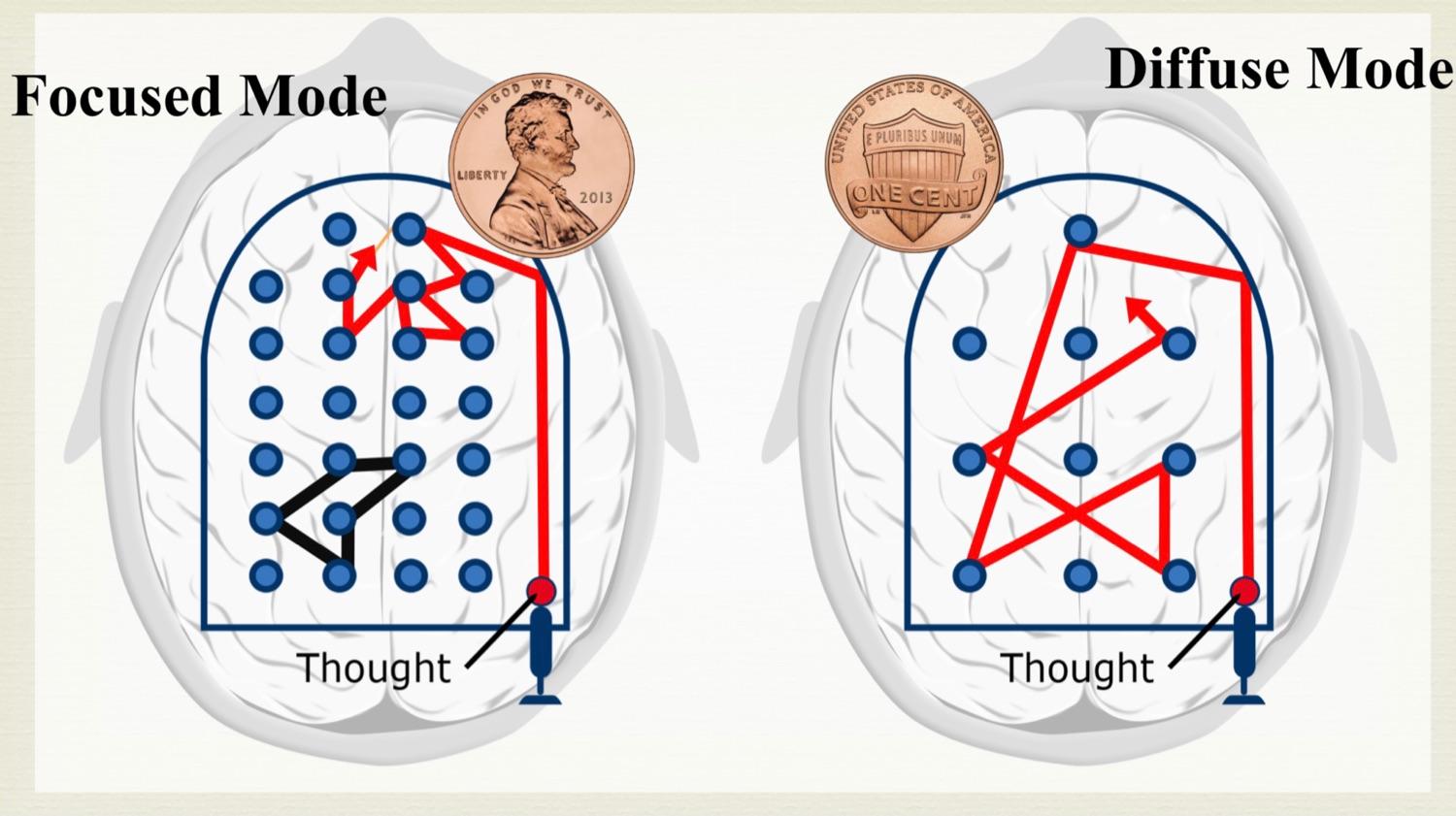Focused Vs Diffused Thinking
Focused mode of thinking is when you concentrate intently on something, like solving a math problem. While, diffused mode of thinking is a more relaxed kind of thinking. It is when you zoom out of the problem and see new connections, new patterns, and the bigger perspective. At any given point in time, you are either in focused mode of thinking or the diffused mode. It seems you can't be in both thinking modes at the same time.
15
91 reads
CURATED FROM
IDEAS CURATED BY
Learning How to Learn: Powerful mental tools to help you master tough subjects is an interesting course offered on Coursera. The instructors, Barb Oakley and Terry Sejnowski have put together a series of videos and reading material that are concise yet full of information. There are interview videos with experts with multiple backgrounds that are insightful. Here are some of my take aways from the course.
“
The idea is part of this collection:
Learn more about personaldevelopment with this collection
How to create customer-centric strategies
The importance of empathy in customer success
The impact of customer success on business growth
Related collections
Similar ideas to Focused Vs Diffused Thinking
Focused & Diffuse Modes - two modes of thinking
Focusing:
- concentrating intently on sth you're trying to learn
- sth you're rather familiar with -> thought moves smoothly as if it's traveling along a familiar, nicely paved road
Diffuse thinking:
- more rel...
The focused and diffuse thinking modes
When mastering a subject, our brain has two general modes of thinking: focused and diffuse, both important in the learning process.
The focused mode is what we traditionally associate with learning. But we need time to process what we pick up, to get this new informat...
Comparison vs. First Principles Thinking
Comparison Thinking (reason through analogy)
When you make decisions and judgement calls based on what you or others have experienced. An easy mode of thinking but also offers no innovation or large changes.
First Principles Thinking (new pe...
Read & Learn
20x Faster
without
deepstash
with
deepstash
with
deepstash
Personalized microlearning
—
100+ Learning Journeys
—
Access to 200,000+ ideas
—
Access to the mobile app
—
Unlimited idea saving
—
—
Unlimited history
—
—
Unlimited listening to ideas
—
—
Downloading & offline access
—
—
Supercharge your mind with one idea per day
Enter your email and spend 1 minute every day to learn something new.
I agree to receive email updates
